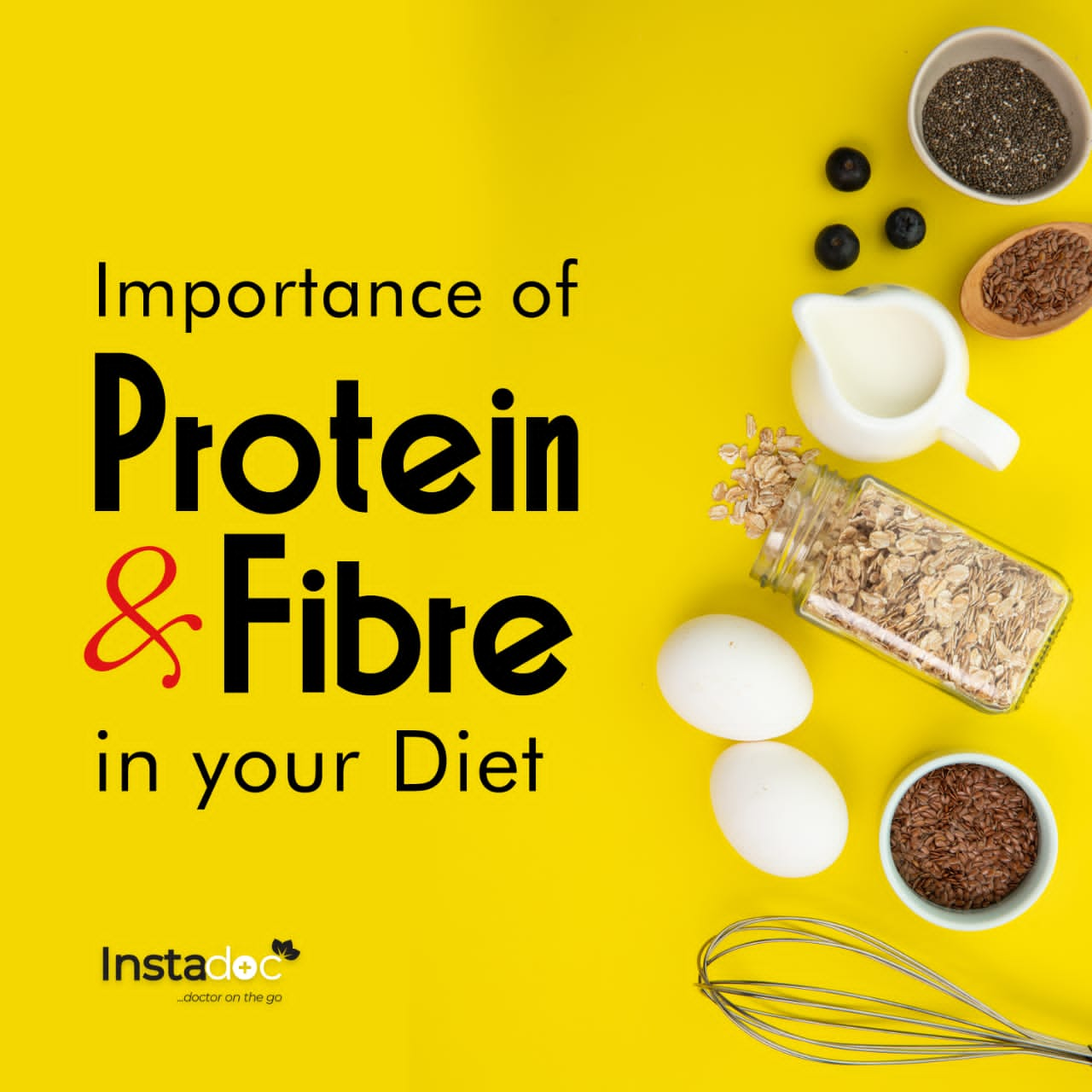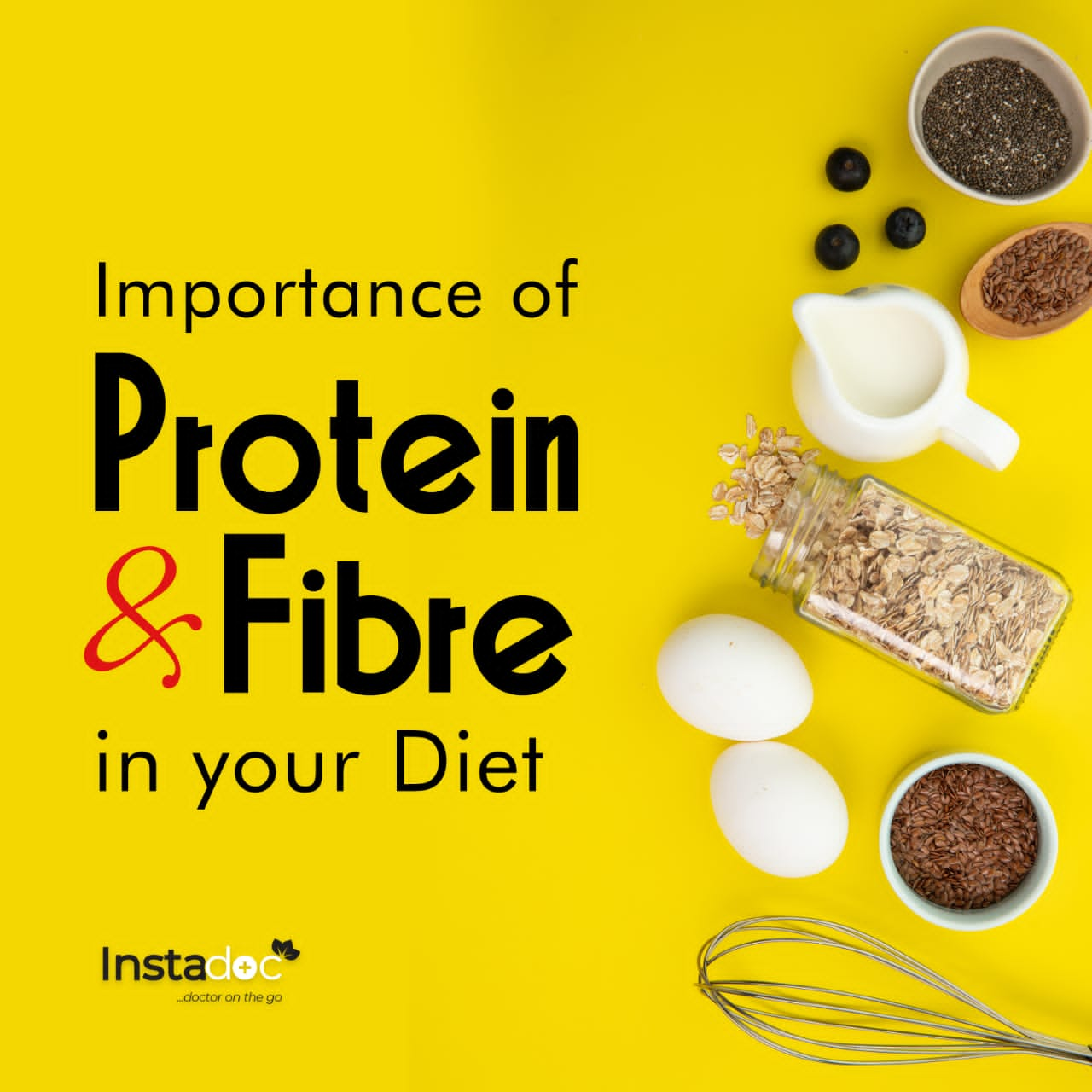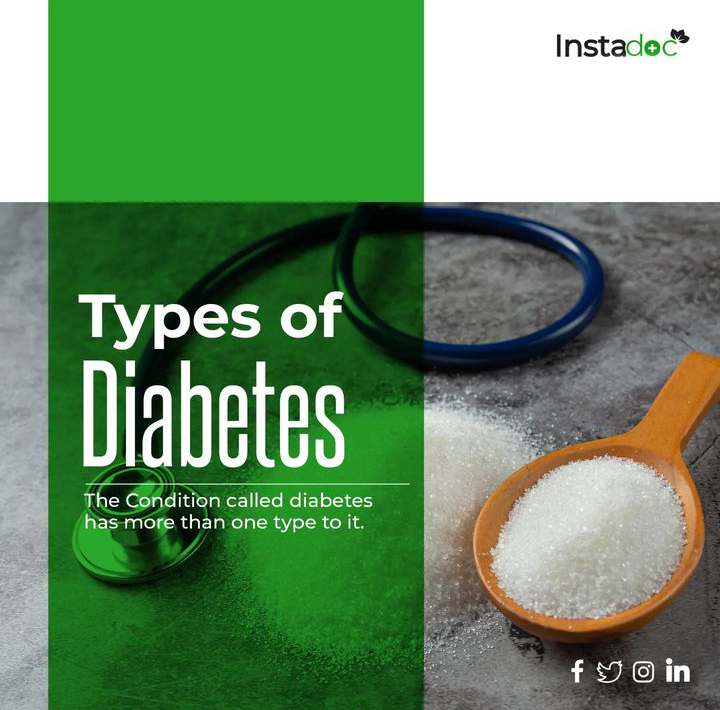THE IMPORTANCE OF PROTEIN AND FIBRE IN YOUR DIET
- 3 years ago
- 0 Comments
- FOOD AND HEALTHY EATING
HE IMPORTANCE OF PROTEIN AND FIBRE IN YOUR DIET
Maintaining a balanced diet is vitally important to your overall health. Ensuring that your body is getting the right nutrients, minerals, and vitamins makes it possible for your body to function properly and provides fuel for all the activities that you enjoy. But what things should you look for when trying to prepare a balanced meal? A healthy diet is one that includes all the important nutrients in one's diet. Protein and fibre are two very important elements to include in one's diet. What is protein? Proteins are large, complex molecules that play many critical roles in the body. They do most of the work in cells and are required for the structure, function, and regulation of the body's tissues and organs. Why your body needs protein Five compelling reasons why you should make sure you are getting enough protein every day: For Building Protein is an important building block of your bones, muscles, cartilage and skin. In fact, your hair and nails are comprised mostly of protein. For Repair Your body uses protein to build and repair tissue(s). For Oxygenation Red blood cells contain a protein compound that carries oxygen throughout the body. This helps supply your entire body with the nutrients it needs. For Digestion About half the dietary protein that you consume daily goes into making enzymes, which aid in digesting the food you eat and making new cells and body chemicals. For Regulation Protein plays an important role in hormone regulation, especially during the transformation and development of cells during puberty. FIBRE Fibre is also an essential ingredient of a healthy diet. They are best known for their ability to prevent and relieve constipation. Dietary fibres are mainly found in fruits, vegetables, legumes and whole grains. What fibre does in the body: Supports Bowel Movement Dietary fibre softens your stool and increases its weight, making it easier to pass through the colon, thereby reducing constipation. On the other hand, fibre also adds bulk to the stool and solidifies it in diarrhea cases. Controls Blood Sugar Levels Soluble fibres reduce the rate of sugar absorption, thereby improving blood sugar levels. The sugar present in food rich in fiber is absorbed more slowly, causing the blood glucose levels to rise at a slower pace. This is good because a sudden increase in glucose levels also falls rapidly making you feel hungry very soon thereby resulting in overeating. Lowers Cholesterol Levels The soluble fibres help reduce low-density lipoprotein, or “bad,” cholesterol levels, ultimately total blood cholesterol levels. Examples of foods that contain soluble fiber oats, flaxseeds, and beans.... And the list can go on. Cleanses the Colon Fibres acts like a scrub brush to clean out bacteria and other build-ups from the intestines and very likely to reduce the risk of colorectal cancer.
NOTE: Fibers are not digested in our bodies but instead passes relatively intact through our stomachs, small intestine, and colon and out of our bodies. Too much of it may lead to abdominal bloating, cramps and intestinal gas. A high fibre diet acts best when it absorbs water; so, drink plenty water to get the best digestion when you eat food that contains or is rich in fibre.
IN CONCLUSION
To regulate your digestive system and decrease risk of Type 2 diabetes, choose a diet high in fibre. If you want to lose weight, a diet high in protein will increase your metabolism and help you feel satisfied longer. However, balance is key. Together, both protein and fibre can help you feel fuller longer and fuel your body with energy. They also work together to promote healthy digestions which while making your bowel movements more regular, will promote overall health and a sense of wellbeing.






Comments (0)